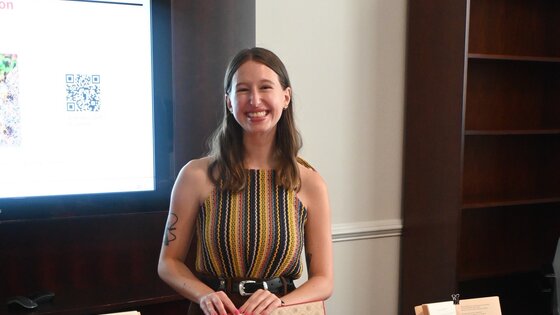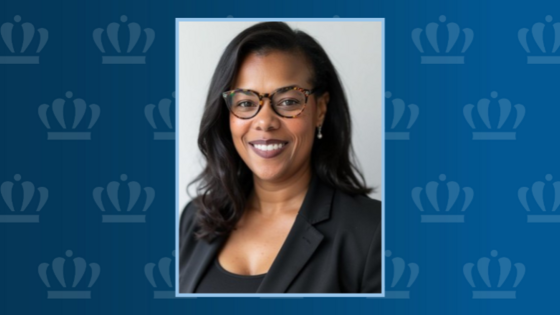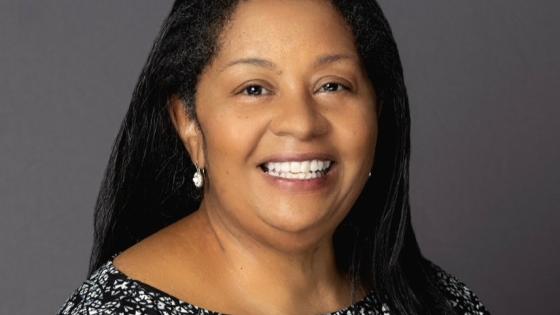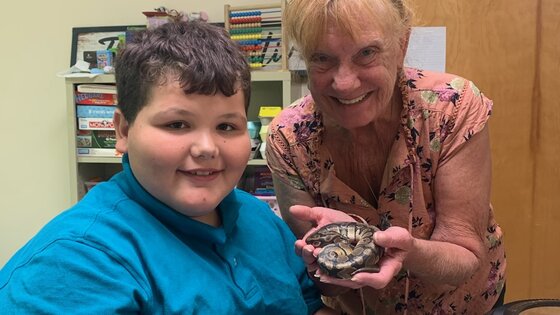Enrolled teachers are able to complete online coursework through ODUGlobal and earn digital badges or micro-credentials.

In an increasingly digital world, it is important for the next generation to be educated in computer science. That is the premise of the commonwealth’s updated Standards of Learning, which go into effect this upcoming academic year. An Old Dominion University project is helping prepare not just the students but the educators in charge of teaching these foundational technology skills.
“This substantial change in educational policy has to be translated into practice,” said Joanna Garner, Ph.D., the executive director of The Center for Educational Partnerships. “We really wanted to build capacity in the schools for these teachers to feel comfortable with the content.”
The Advancing Rural Computer Science (ARCS) project is led by Dr. Garner and an ODU team from The Center for Educational Partnerships. Over the last five years, it has served nearly 13,000 students and 222 teachers from dozens of school divisions across Virginia. The U.S. Department of Education-funded project aims to support K-5 teachers’ professional development and help them learn to better incorporate computer science in core subject areas like English and math. It operates in partnership with CodeVA, a nonprofit that supports computer science education for all Virginia students, and the Virginia Department of Education. Independent research to measure the project’s impact was conducted by faculty at the University of Virginia.
The Center for Educational Partnerships (TCEP), housed within the Darden College of Education & Professional Studies, fosters educator and student success by building partnerships that span K-12 schools, higher education and informal learning environments.
Garner said participating educators in the project were guided in enhancing core subject area lessons with computer science skills “wherever there is a meaningful way.” This could look like using plot and sequence of events to help explain algorithms or learning to code a robot to navigate a maze.
Arianna Trickey, a technology coach with Richmond Public Schools, shared her feedback after participating in the project, stating ARCS made a positive impact on her ability to support other instructors in how to best handle the Standards of Learning. The support she and the others in her cohort received — stipends to support their professional development, access to resources to assist in instruction, Chromebooks and networking with other educators Virginia-wide — helped her become more confident in this area of instruction.
“Through ARCS, I have been able to create engaging, hands-on learning experiences that equip students with valuable 21st-century skills,” Trickey said. “Whenever I collaborate with teachers to develop or model a computer science-integrated lesson, the level of student engagement is remarkable.”
She described “one of the most memorable moments from this journey” as the time she witnessed a student with special needs who has struggled with academics light up during a coding lesson that connected with a story. She said he had been very excited and was the first to complete the assignment. The joy she saw in the child drove home the importance of integrating computer science into the curriculum.
Another piece of the ARCS project was research — was the project making a difference for the teachers and students involved? Teachers who participated in the ARCS project reported having greater confidence with the subject than had they just gone about “business as usual,” Dr. Garner said. That self-efficacy is a big predictor in their success in the classroom, and findings showed that students in these teachers’ classrooms also performed well on a specially designed computer science assessment.
Recently, the project earned two Programs That Work awards — one for student impact and one for teacher impact — from the Virginia Mathematics and Science Coalition for its success in helping teachers gain confidence in integrating computer science into lessons.
The teachers were also able to complete online coursework and earn digital badges or micro-credentials. In Virginia, teachers must complete professional development activities or other course work as part of the process to renew their license. Offered through ODUGlobal, these micro-credentials help support the teachers’ continuing education, and even if they were to take their careers to other divisions or even other states, Dr. Garner said, they will have these skills to share and implement in their new communities.









